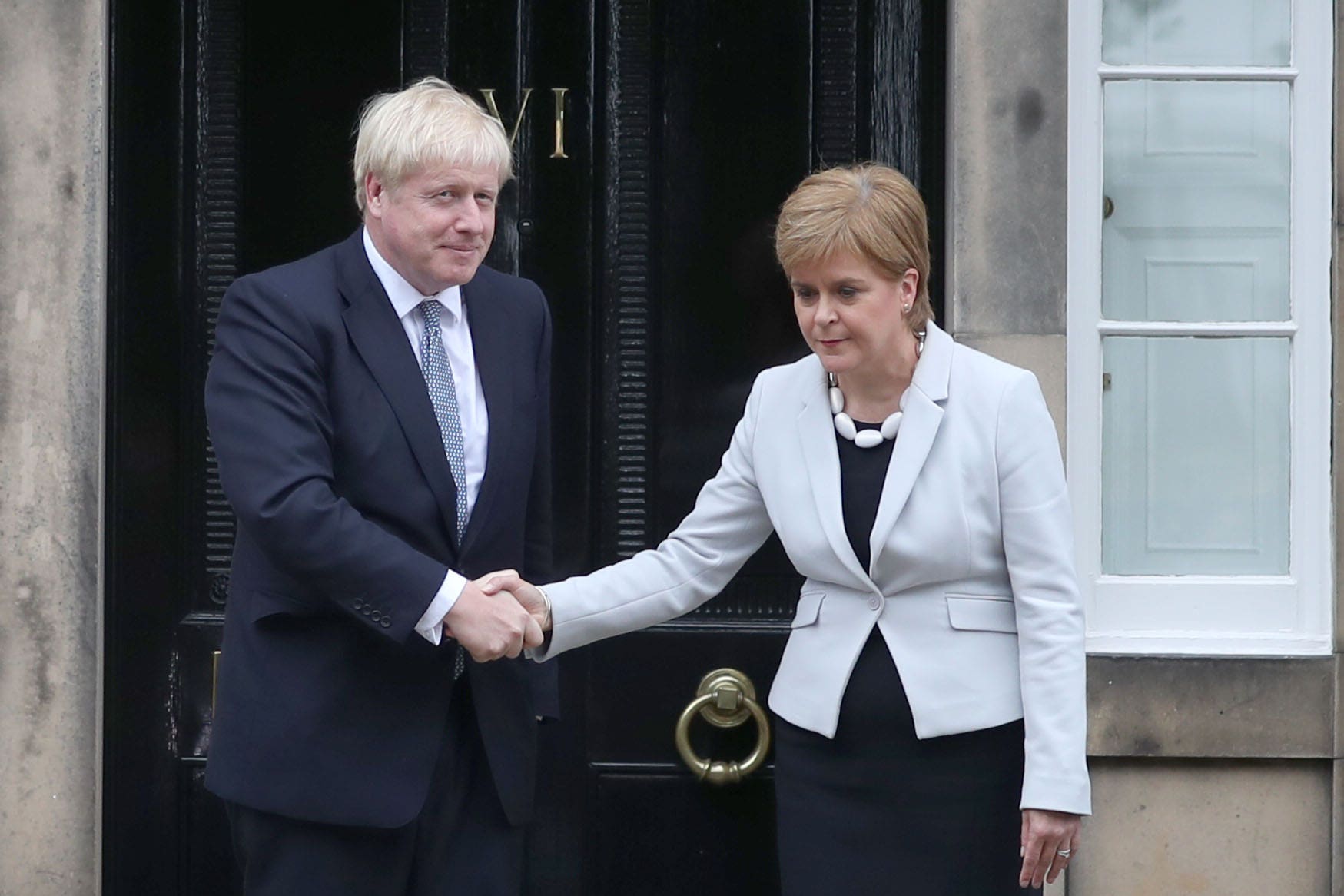Johnson reluctant to hold ‘mini EU’ meetings with first ministers
Boris Johnson feared leaks from the devolved administrations and bemoaned the lack of a UK-wide message.

Your support helps us to tell the story
From reproductive rights to climate change to Big Tech, The Independent is on the ground when the story is developing. Whether it's investigating the financials of Elon Musk's pro-Trump PAC or producing our latest documentary, 'The A Word', which shines a light on the American women fighting for reproductive rights, we know how important it is to parse out the facts from the messaging.
At such a critical moment in US history, we need reporters on the ground. Your donation allows us to keep sending journalists to speak to both sides of the story.
The Independent is trusted by Americans across the entire political spectrum. And unlike many other quality news outlets, we choose not to lock Americans out of our reporting and analysis with paywalls. We believe quality journalism should be available to everyone, paid for by those who can afford it.
Your support makes all the difference.Boris Johnson was reluctant to meet the leaders of Scotland, Wales and Northern Ireland during the pandemic because he thought it would be like a “mini EU”.
The former prime minister, a prominent Brexiteer, said it was “optically wrong” for him to be meeting the leaders of the devolved administrations (DAs) regularly.
But he admitted that with hindsight he should have done more to try to achieve a unified UK-wide response during the pandemic.
It is optically wrong, in the first place, for the UK prime minister to hold regular meetings with other DA first ministers, as though the UK were a kind of mini EU of four nations and we were meeting as a 'council' in a federal structure
“I think that in future, there has to be some way of having a joined-up, UK pandemic response,” he said.
“It just seems to me that something needs to be done to fix this whilst taking account of the legitimate concerns of the DAs, their legitimate desire to be involved and to contribute. But we need to find a better way to get a single message.”
During the pandemic, then-Scottish first minister Nicola Sturgeon, Welsh First Minister Mark Drakeford and Northern Ireland’s Arlene Foster sometimes adopted different approaches or made announcements ahead of Mr Johnson.
Appearing at the Covid inquiry, Mr Johnson said: “It is no disrespect to the first minister of Scotland or anybody else, Northern Ireland, Wales… they understandably we’re looking to talk directly to their own electorates, there were going to be times when they they differed from the main UK Government message.
“And I thought that was sometimes at risk of being confusing at a time when we really needed to land messages simply. I could see and people endlessly playing back: ‘Oh, but Scotland says this, England says this, Wales is doing a fire-breaker, a circuit breaker’ and so on.”
Asked about an email from his senior aide Dominic Cummings, on who should attend high-level Cobra meetings, which suggested the devolved administrations “leak” what was said immediately afterwards, Mr Johnson told the inquiry: “I think that sometimes that that was the case.
“And that was, in my view, a problem. Perhaps he could have found a better way to manage it. But it’s that was certainly one of the problems.”
As well as concerns over leaking, Mr Johnson appeared reluctant to meet the leaders in case it appeared they had an equal status.
His witness statement said: “It is optically wrong, in the first place, for the UK prime minister to hold regular meetings with other DA first ministers, as though the UK were a kind of mini EU of four nations and we were meeting as a ‘council’ in a federal structure.
“That is not, in my view, how devolution is meant to work.”
Despite that view, Mr Johnson said “with hindsight” he would have spent more time working with the DAs to “bring them with me”.
Asked to explain that apparent contradiction he said: “Sometimes you can do things which you think are constitutionally a bit weird if it will help the general cause of fighting the pandemic.”